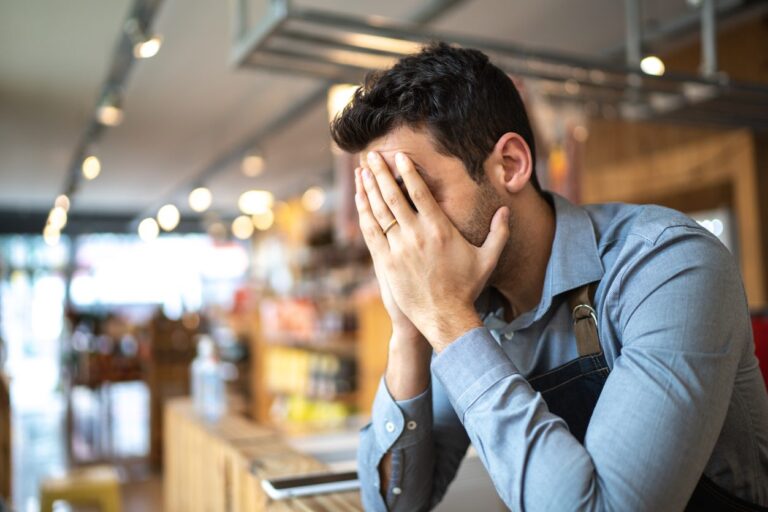In a world saturated with images of seemingly flawless beauty, where social media platforms showcase carefully curated highlight reels of people’s lives, it’s not uncommon to experience moments of self-doubt and insecurity.
However, feeling less attractive than others is common and influenced by societal standards and comparisons. Remember that beauty is subjective, and self-worth goes beyond appearance.
Here, you will see the tips to feel better about your appearance, even when faced with these pressures.
Factors Influencing Self-Perception and Body Image
Societal Beauty Standards:
Our society bombards us with incessant messages and images dictating how we should look and who we could be. Our self-esteem is damaged by this never-ending flood of conflicting information, creating self-doubt. Experiencing it at a young age might make one feel awful. Society criticizes those who are overweight while simultaneously resorting to hurtful terms like “anorexic” for those who are thin. This mounting pressure is like a pressure cooker about to explode.
Critical Parental Figures:

Moreover, When parents or caregivers are overly critical, they plant the seeds of self-doubt in individuals, making them question their own attractiveness with thoughts like, “Why do I feel unattractive?”
Ideally, parents and caregivers should provide love and support, but some carry their emotional baggage into their relationships with their children, making disparaging comments about appearance, clothing, and life choices.
Homogeneous Communities:
In a homogeneous community, where shared beliefs are uniform and there’s little room for variation in thought and behavior, strict beauty standards are often upheld. If your appearance doesn’t conform to these standards, you risk facing criticism within the community, which can make you feel like an outsider and less beautiful.
Bullying:
Bullying remains a common and distressing experience, especially for young individuals. It takes various forms, from physical violence to online harassment. It often targets an individual’s physical appearance, causing emotional pain and low self-esteem. Experiencing it in childhood and adolescence might make one feel ugly.
Comparisons:
Many of us have experienced being compared to other family members, which can be hurtful. Comments like, “Nila’s new hairstyle really suits her. You could try something different too,” can inadvertently trigger self-critical thoughts about our appearance and impact our self-esteem.
Rejection:
Then, it is a challenging experience that can lead to self-doubt and questioning our self-worth. When we face repeated rejections throughout our lives, it can lead to irrational conclusions about our value.
Social Media Self-Worth:
Social media has both advantages and disadvantages. Positive interactions, like receiving likes and messages, can trigger a dopamine rush in our brains. Consequently, when we receive fewer online affirmations, our self-esteem and self-image can suffer.
Struggles with Mental Health:
The landscape of mental health conditions can distort our self-perception, particularly when these illnesses focus on one’s body. This distortion manifests as a spectrum of self-critical emotions, spanning from anxious ruminations and negative core beliefs to profound self-loathing.
- Body Dysmorphia: Body dysmorphia revolves around an individual’s obsessive preoccupation with their physical appearance, often leading them to perceive their body through an unrealistic and critical lens, subsequently culminating in self-deprecating thoughts.
- Mood Disorders: Conditions such as depression and bipolar disorder can provoke this persistent self-questioning. Major depressive disorder frequently gives rise to exceedingly negative self-appraisals, while bipolar disorders oscillate between depressive and manic states. Though mania can briefly boost self-confidence, it doesn’t endure when depressive moods resurface.
- Eating Disorders: Eating disorders entail harmful and distressing relationships with food and one’s own body. Individuals grappling with eating disorders often harbor self-loathing sentiments concerning their physical form, thus nurturing the “Why do I feel so unattractive?” notion.
- Anxiety Disorders: Anxiety disorders, particularly social anxiety and social phobia, sprout from irrational fears and persistent apprehensions. The self-deprecating query, “Why do I feel so unattractive?” emerges as a byproduct of negative thought patterns, especially when anxiety and phobias have a social context.
- Post-Traumatic Stress: Post-traumatic stress is a natural response to traumatic and distressing experiences. The question, “Why do I feel so unattractive?” can intensify following traumatic events, such as sexual assault or harassment, which can profoundly tarnish one’s self-image.
- Substance Use Disorders: Substance misuse involves the excessive use of mind-altering substances, often employed to alleviate negative self-talk. Paradoxically, this can intensify self-loathing, especially when substances lead to physical alterations and changes in one’s appearance.
- Personality Disorders: Certain personality disorders, notably those in clusters B (emotionally related) and C (anxiety-related), can significantly disrupt one’s sense of self. When individuals grapple with a deficient self-concept, it becomes arduous to embrace and accept one’s own body, as the very idea of self may feel alien.
Strategies for Building Self-Esteem and Positive Body Image

Practice Self-Compassion: Treat yourself with the same kindness and understanding that you would offer to a friend. Replace negative self-talk with positivity and encouragement. Remember that you are worthy of love and respect, just like anyone else.
Prioritize Self-Care: Engage in self-care routines that make you feel good about your appearance. This can include getting enough sleep, spending time outdoors, and doing activities that help you relax and unwind.
Appreciate Your Body’s Abilities: Shift your focus from your body’s appearance to what it can do. Recognize and appreciate the physical capabilities of your body. This shift in perspective can improve your self-esteem and overall life satisfaction.
Make Small Changes: If you feel uncomfortable with your wardrobe or hairstyle, consider making small changes that complement your features and boost your self-confidence. Like a new haircut, color, etc.
Embrace a Healthy Lifestyle: Living a fit and healthy lifestyle can significantly impact how you feel about yourself. Regular exercise and making healthy food choices can help you feel better and enhance your self-image.
Practice Self-Acceptance: Accept yourself as you are, flaws and all. Embrace your unique qualities, quirks, and imperfections. Self-acceptance and embracing your personal style can boost your self-confidence and make you feel more attractive.
Focus on Your Personality: Remember that people value you for your personality and positive traits, not just your physical appearance. Transfer focus from your looks to your inner qualities, which are truly what makes you special.
Realize That Others Don’t Notice as Much as You Think: Don’t assume that others pay as much attention to your perceived imperfections as you do. People often don’t notice the things you are self-conscious about as much as you think they do.
Practice Opposite Action: When negative emotions about your appearance overwhelm you, try doing the opposite of your usual reaction. This can help diffuse strong emotions and promote mindfulness.
Reevaluate Your Social Media: Be mindful of the people you follow on social media. Consider diversifying your feed to include a more varied and realistic representation of beauty. Unfollow accounts that contribute to negative body image and self-esteem issues.
Practice Body Neutrality: Shift your focus from appearance to your body’s capabilities and what it can do for you. This approach emphasizes self-worth beyond physical looks.
Practice Middle-Ground Thinking: Bridge opposing thoughts by acknowledging your feelings without judgment. Find middle-ground thoughts that promote body neutrality and self-acceptance.
Cultivate Radical Acceptance and Moderate Language: Embrace challenging days without judgment and avoid extreme words like “always” and “never” when discussing yourself and your body. These practices can help boost self-esteem and body image.
When to Seek Professional Help for Negative Self-Talk
Professional support is essential when negative self-talk disrupts your daily life. Therapies like Cognitive Behavioral Therapy (CBT) and Dialectical Behavior Therapy (DBT) are beneficial in addressing these issues. You can find a therapist through online directories, check with in-network providers in your insurance, or explore online therapy options that accept insurance.
FAQs
Why do I feel ugly compared to others?
Feeling less attractive compared to others can be influenced by societal beauty standards, comparisons, and negative self-talk. It’s a common experience.
Is it normal to feel like you are ugly?
Yes, it’s normal to have moments of self-doubt about your appearance. Many factors, including societal influences, can contribute to these feelings.
What makes me so unattractive?
Self-perceived unattractiveness can stem from a variety of factors, but it’s important to remember that beauty is subjective and diverse.
Am I uglier than I think?
No, Your self-perception may be influenced by negative self-talk or societal pressures, but it’s essential to challenge these thoughts and focus on self-acceptance.
Do I see myself uglier?
Yes, Self-perception can sometimes be distorted, and it’s crucial to develop a more positive and realistic view of yourself through self-compassion and positive self-talk.
How can I feel attractive again?
Building self-esteem and feeling attractive can be achieved through self-compassion, challenging negative thoughts, and seeking support if needed.
How do I accept being unattractive?
Acceptance starts with understanding that self-worth is not solely based on appearance. Embrace your unique qualities and focus on inner strengths.
How do you feel prettier when you feel ugly?
To feel prettier when experiencing self-doubt, practice self-compassion, challenge negative thoughts, and focus on your positive qualities and accomplishments.
Final Words:
Feeling unattractive compared to others is a relatable experience, but it’s important to recognize that this perception is often shaped by societal influences, comparisons, and negative self-talk. Beauty is diverse and subjective, and self-worth is not solely based on appearance.
Furthermore, building self-esteem and self-acceptance takes time, but it’s a journey worth embarking on. Remember, you are unique and valuable just as you are, and with self-compassion and positive self-perception, you can develop a more positive and realistic view of yourself.
Lastly, If these feelings persist and significantly impact your well-being, seeking professional support can be a valuable step toward self-improvement and personal growth.

